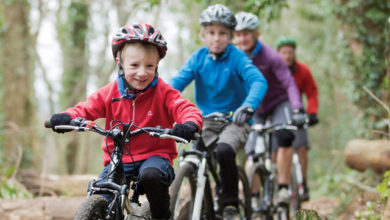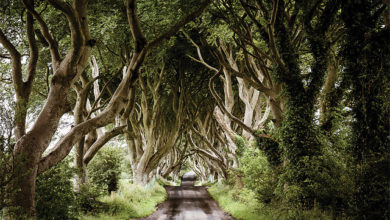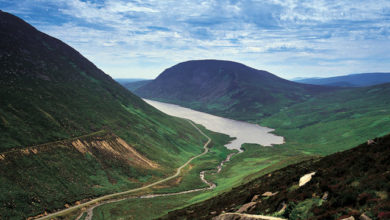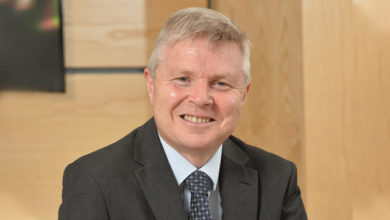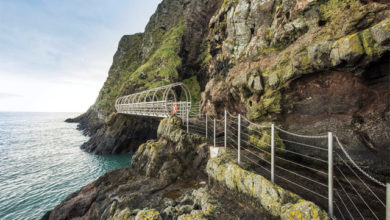Tourism’s recovery and growth
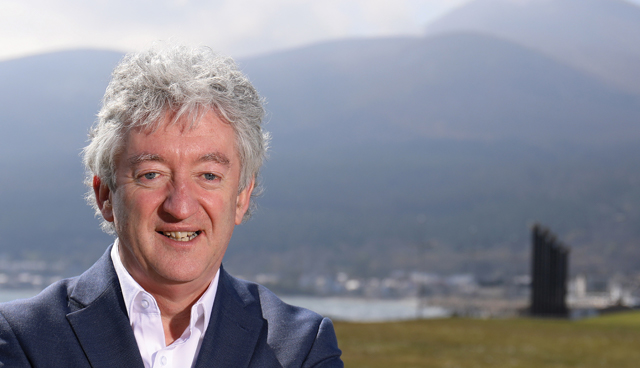
Tourism NI Chief Executive John McGrillen looks at the impact of the Covid-19 pandemic on the tourism sector and discusses the sector’s future prospects post-pandemic.
McGrillen admits that the pandemic has dealt a huge blow to an industry, which was riding high after a record breaking 2019 where revenue surpassed £1 billion for the first time and the hosting of the Open elevated Northern Ireland’s status as an attractive destination.
Forecasts suggest that income for the industry in 2020 may have fallen by as much as 48 per cent and it may take to the end of 2022 to reach 80 per cent of 2019 levels, with a fuller recovery not expected before 2024.
“The road back is challenging but we are confident we can negotiate it successfully,” says the Chief Executive, who believes that putting in place the right support mechanisms, alongside the successful roll out of the vaccine programme, could see the industry bounce back quickly.
McGrillen highlights that a lot of Tourism NI’s work in the past year has been directed at supporting the industry “to stay afloat”, as well as preparation for safe and successful reopening.
Tourism NI has invested approximately £25 million on delivering supports to the industry, in addition to the supports offered by the Executive. The Chief Executive outlines that the organisation has had to be agile in its response.
“We have been on a similar learning curve to many others, discovering how to make partnerships work in an online environment and finding new and innovative ways of doing business and connecting with our industry,” he says.
Research globally shows that there is significant pent-up demand to travel. Combined with accumulated savings many households have as a result of the lockdown, the research also shows that when people are able to travel, they will be willing to spend more and stay longer.
“Any such move up market would suit Northern Ireland as we are not a low-cost destination,” explains McGrillen, who adds: “As we continue to navigate the impact of the pandemic, we want to send a clear message that our local industry is working very hard to give our visitors a warm and safe welcome back.”
With restrictions yet to be fully lifted for international visitors, the Republic of Ireland (RoI) market has became crucial for the sector. In August 2020, when restrictions lifted for a time, there was significant increase in the number of visitors from RoI. Research showed that 75 per cent of these visitors had not been to Northern Ireland before and their experience was better than they had expected.
“While it is disappointing that we may be unable to welcome large numbers of international visitors in the short-term, our local industry has a strong opportunity to capitalise on our domestic markets who will be holidaying at home for a while,” states McGrillen.
“In total, 76 per cent of tourism spend in Northern Ireland comes from the UK and Ireland, so we are in a strong position to appeal to our closer to home markets.”
In recognition of this opportunity, Tourism NI recently launched a heavyweight advertising campaign across Northern Ireland. Small Step to a Giant Adventure will encourage staycations and be accompanied by the We’re Good to Go promotion, an industry mark designed to reassure visitors of business compliance to safety recommendations.
Additionally, McGrillen announces that in the autumn, Tourism NI will launch a Holiday at Home voucher scheme offering Northern Ireland households discounts on staycations which will help drive demand after the summer season.
Recovery
Tourism is a key element of the Economy Minister’s Economic Recovery Action Plan and features strongly in the Department’s recently announced ‘10X Economy’, an economic vision for a decade of innovation in Northern Ireland.
On the placement of tourism as central to recovery plans, McGrillen says: “This reflects the fact that the tourism sector, along with hospitality, was worst hit by the pandemic. The plan is essentially about job creation; getting those who have lost their jobs back into employment.
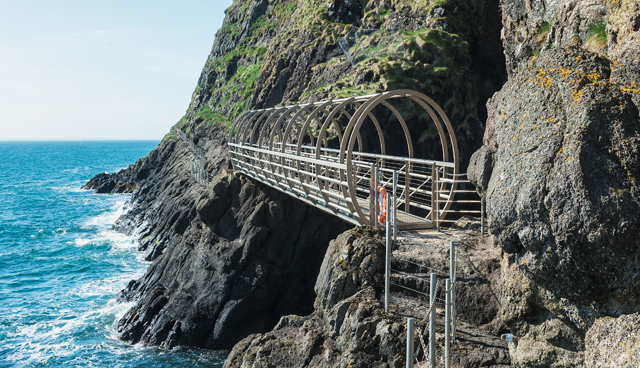
“It’s going to be an incredibly competitive marketplace over the next two years because every nation will be trying to rebuild its tourism industry, the Chief Executive outlines, explaining that much of the promotional work has had to be done virtually, which has raised both challenges and opportunities.
“By not bringing people to Northern Ireland, they are not experiencing the warmth of our welcome which is a key part of our offering. However, using digital platforms has allowed us to reach a much wider audience.”
An example of this was the Northern Ireland showcase Tourism NI held online with Tourism Ireland for the US market. The virtual event was attended by 1,400 agents and tour operators.
“If we had have done that in a hotel in New York we would only have had a fraction of that audience,” he admits, believing that future such events will take a hybrid approach, enabling some attendees to attend online.
Future outlook
McGrillen believes the tourism industry has been incredibly resilient in the face of the global pandemic. “When I talk to operators they are very focused on the future and have a confidence in the quality of their offering. They will bounce back,” he states.
To support the recovery, Tourism NI has looked at what needs to be done over the next 12 to 24 months to transition from survival mode through to growth. Minister Dodds set up a Tourism Recovery Steering Group and a Working Group to bring together the industry to feed into a recovery plan for the sector.
The UK-wide We’re Good to Go scheme has had a strong take-up in Northern Ireland, with 1,700 businesses participating. Tourism NI has also had marketing plans drawn up since late 2020 and has had adverts made and digital assets in place. It has also built a huge amount of content on a new industry-facing website to support the industry.
Additionally, there has been a lot of research carried out to determine who will visit Northern Ireland, and when, during the recovery phase. Tourism NI has shared this data with the industry and has directly supported operators with their marketing and advertising campaigns, in addition to its capital programme to improve the quality of visitor attractions.
Looking to the longer-term, Tourism NI will be going out to consult on a new 10-year strategy to rebuild and grow the sector over the next decade.
“The new strategy will look at how the sector responds to climate change, the green growth agenda and how it can be more connected to local communities to contribute not just economically but also environmentally and socially,” McGrillen concludes.
Tourism NI
T: 028 9023 1221
E: info@tourismni.com
W: www.tourismni.com


